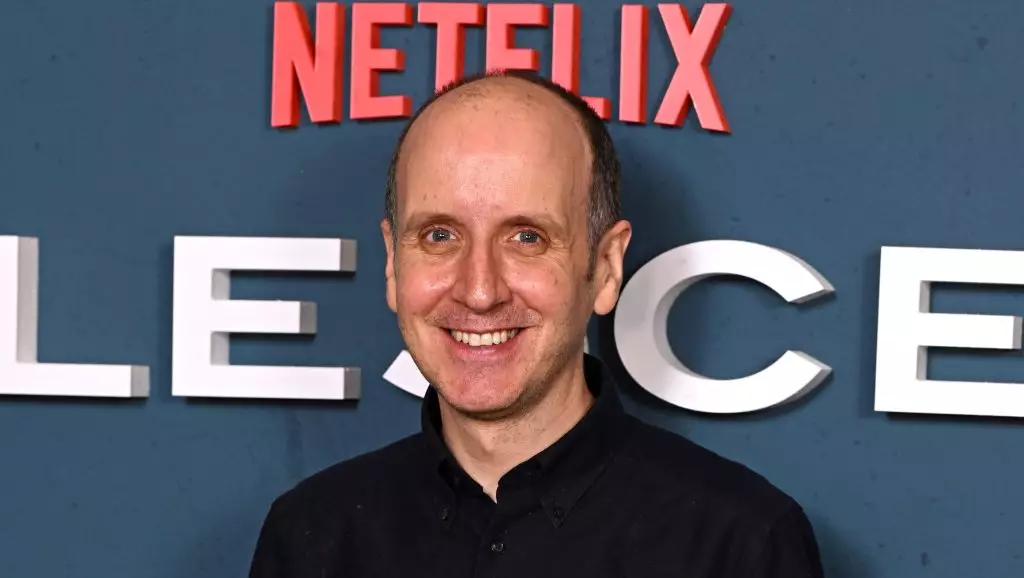In the realm of television, few things are as vital to the fabric of culture as the stories we tell. Jack Thorne, a prominent figure in British drama, is sounding the alarm about a looming crisis: the potential demise of distinctive British storytelling due to a severe funding shortage. Thorne’s insights bring forth a dismal outlook on the future of shows like *Adolescence*, emphasizing that without adequate financial backing, the very foundation of British narrative art is at risk of collapsing.
The Financial Storm: A Threat to Creative Expression
Thorne’s concerns echo throughout the industry and highlight a broader specter that’s haunting creators: a relentless cycle of budget cuts by UK broadcasters and the escalating costs associated with international financing. The British television landscape, once vibrant and diverse, is currently characterized by a growing homogeneity, dominated by crime dramas and procedural formats that fail to reflect the rich tapestry of experiences that life in the UK embodies. Delving into the core of this issue, Thorne articulately posits that the uniqueness of British television series—especially those telling intimate, personal stories—requires robust support to flourish in this increasingly capitalist-driven environment.
With streaming giants like Netflix exploring content from various corners of the globe, there’s a fear that local stories will be overshadowed, rendered extinct in the quest for mass-market appeal. Thorne’s warning is stark: if local broadcasters such as Channel 4 and BBC do not receive the funding they need, the loss could be devastating. Emerging storytellers, once able to find platforms to express their voices through drama, are now being stymied, leaving gaping voids where innovative narratives could otherwise thrive.
A Plea for Policy Change: Reviving British Creativity
What do we do in the face of this impending crisis? Thorne has proposed solutions that reflect a keen understanding of not just the industry’s needs but also the importance of cultural identity. He advocates for enhanced tax breaks and a “streamer levy,” whereby global streaming platforms would contribute a portion of their UK revenues to a fund dedicated to supporting local storytelling. This is not merely about imposing a tax; it is about fostering collaborative efforts to sustain Britain’s storytelling DNA—an essential move that could breathe new life into an industry at a crossroads.
Moreover, the fact that these streaming platforms can afford to pay for content but are not fully invested in the local narrative is troubling. Thorne notes that his successful series *Adolescence* transitioned from Amazon Prime to Netflix, highlighting how accessibility and funding are intricately linked. The pressure to secure international financing creates barriers for uniquely British projects that might not appeal to overseas investors. Thus, the next generation of writers could be left without the opportunity to share their own experiences, which risks further homogenizing the landscape.
The Role of Government: A Delicate Balance
The UK government’s response to these concerns has been cautious. While they acknowledge the issue, the ministers express apprehension regarding hasty actions that could disrupt the country’s successful screen ecology. This delicate balance between facilitating growth and avoiding shockwaves through the ecosystem is crucial. Thorne’s insight—emphasizing that Netflix and other platforms should be seen as partners rather than adversaries—serves as a reminder that collaborative efforts could yield positive outcomes for all.
Indeed, as Thorne articulates, the focus should be on creating an inclusive environment that champions diverse voices instead of constricting them within narrowly defined genres. If the UK government, industry veterans, and emerging talent can rally together, not only can they safeguard the cultural essence of British storytelling, but they can also invigorate it and give rise to a new generation of innovative creators.
In a creative landscape that appears increasingly bleak, Jack Thorne’s clarion call for the protection of British storytelling is more than just a wake-up call; it is an urgent request for systemic change. The future of the UK’s cultural narrative depends on an industry-wide commitment to nurture diverse voices and elevate stories that reflect the multifaceted tapestry of British life. Only through such concerted efforts can we hope to preserve the thriving landscape of British drama for future generations.
